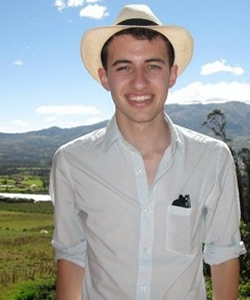“Sin idioma, no hay el pueblo.” Without language, there is no community, no people, no tradition. The words above were spoken by a Mapuche man in the south of Chile about the importance of retaining his ancestral language. There are millions of indigenous people in Latin America and dozens of unique languages spoken for generations. Much has been written about how these languages are at risk or endangered, and about how language conservation is critical to the preservation of a culture. My focus, however, is on the reasons why we study languages and how this paradigm is upended by the experience of indigenous populations.
Language is more than a set of symbols marking concepts and objects, with a Spanish word easily exchanged for one in English, French, or Chinese. The average introduction to Spanish textbook would translate pueblo to "town," but the Spanish word contains the weight of history, with the meanings of "tradition" and "community" as well. In English, we celebrate linguistic innovation, christening words of the year, twisting nouns into verbs, and importing and exporting phrases from popular culture and other languages. Latin American Spanish contains many loan words from indigenous languages, such as guata for stomach (from Mapudungun) and guagua for baby (from Quechua). Discovering these differences, nuances, and novelties, where literal translation does not suffice, is a part of the thrill of learning a new language. The expression of language not only defines but also creates the world of the language that its speakers inhabit. In this way, every day I spend in Latin America, every word I learn and phrase I hear, I am involved in a process of opening myself to new interpretations of reality. This is why we learn languages, in order to discover in everyday conversations and to access and communicate with new cultures and peoples.
Yet for the indigenous peoples of Latin America, the process of language learning is completely distinct. They learn their languages to preserve rather than discover and are fighting outside influence, rather than embracing it. If the Mapuche language, Mapudungun, is not the first language of children today, then the Mapuche people must, in essence, learn their culture instead of absorbing it. In this way, language learning is for the Mapuche an existential process through which they recreate an ancient culture and, in part, reject the culture in which they are immersed. Indeed, while everyone in the Mapuche community I visited could understand Mapudungun, only the adults could speak it fluently. The language native to the Mapuche people is not the native language of many modern Mapuche.
I asked an older Mapuche woman, showing us how she dyes wool, if she spoke Mapudungun, and she responded, in Spanish, "“I was born here. I was raised here. I was married here. My husband is Mapuche. I am Mapuche. I speak Mapudungun. I sing in Mapudungun."” Her language, like her husband and home, is intrinsic. Talking to this woman I realized the fundamental difference between why we study languages. I study Spanish to look outward and onward, to question and confirm myself, and to break away from my familiar. The indigenous peoples in Latin America speak to find familiarity in a world populated by difference. She speaks Mapudungun to retain her past, and in learning her language discovers her own existence.

